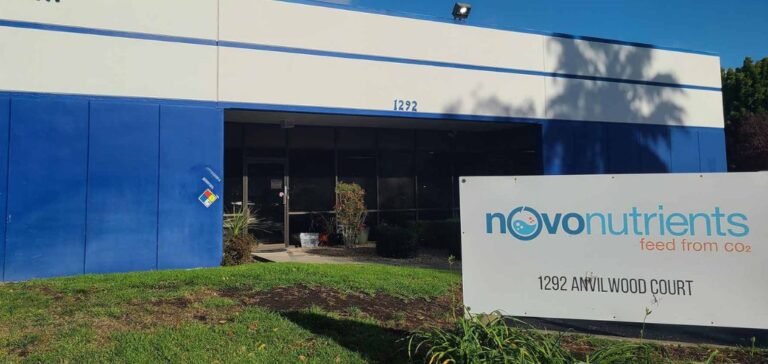NovoNutrients raised $18 million, comprising $10.3 million in new capital and the conversion of $8 million in SAFEs. This funding will enable us to strengthen our industrial pilot program, expand our team and develop commercial partnerships. The company has already signed Technology Development Agreements (TDAs) with companies in the energy and nutrition sectors, including a TDA with Woodside Energy in 2023.
Carbon Capture and Utilization Technology
NovoNutrients uses an innovative technology that combines industrial CO₂ emissions with hydrogen to produce Novotein™, a high-quality protein. This technology has proved its effectiveness in comparative studies with traditional proteins, significantly reducing the use of natural resources.
Applications and target market
Potential applications for Novotein™ include pet food, aquaculture and plant-based alternatives for human consumption. Demand for sustainable, cost-effective protein sources is growing, and NovoNutrients aims to capture a share of this growing market.
Strategic Partnerships and Business Development
NovoNutrients’ approach includes an asset-light strategy, focusing on licenses and strategic partnerships. The Series A financing will enable the company to strengthen its partnerships and accelerate its technological development. Min Zhou, Managing Partner of CM Venture Capital, underlines NovoNutrients’ ability to become a leading provider of carbon capture and utilization technologies.
The fundraising marks an important milestone for NovoNutrients, positioning the company for rapid growth and expansion of its commercial partnerships. With the support of its investors and partners, NovoNutrients is well placed to contribute to the evolution of the sustainable protein market.






















